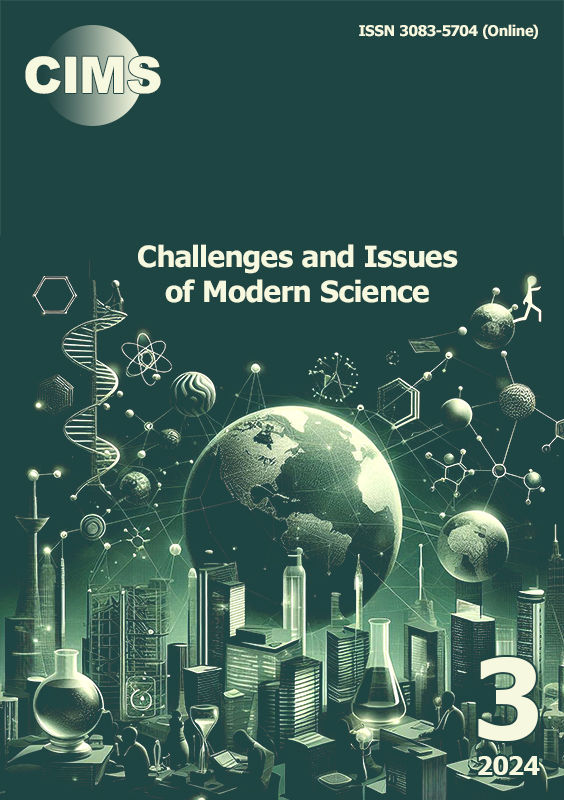Training convolutional neural network models for object, scene and context recognition in images
Keywords:
object detection, convolutional neural networks, image classification, deep learning, computer visionAbstract
Purpose. The study focuses on developing an optimized convolutional neural network (CNN) for detecting objects, scenes, and contexts in diverse images. It emphasizes improving the architecture, training methods, and performance of CNNs in computer vision tasks, which are essential for various industries. Design / Method / Approach. The study uses Python, TensorFlow, and Keras to create and train a CNN on dataset CIFAR-10. Hyperparameter tuning and data augmentation techniques were applied to enhance model performance. Findings. The CNN model trained on CIFAR-10 demonstrated strong performance with an accuracy of approximately 85% on the test set, highlighting its ability to classify diverse objects. Data augmentation techniques significantly improved the overall performance by making the model more robust to image variations. Theoretical Implications. The study emphasizes the importance of proper data preparation, including image normalization and augmentation, to achieve high accuracy in CNN models. Practical Implications. The application of convolutional neural networks in real-world scenarios such as security, medicine, and autonomous systems is transformative. These models can accurately detect objects and understand contexts, opening new possibilities for innovation and automation in various industries. Originality / Value. This study makes a valuable contribution to research on convolutional neural networks by showcasing the successful training and optimization of a CNN for object detection. The combination of data augmentation, architecture design, and hyperparameter tuning highlights an effective approach to achieving high accuracy in computer vision tasks. Research Limitations / Future Research. Future research could explore alternative CNN architectures and larger datasets to further enhance object detection accuracy. Additionally, integrating new learning strategies could improve the model's performance in more complex and varied environments. Paper Type. Applied Research.
Downloads
References
Liu, Ruishen. "Face Recognition Based on Convolutional Neural Networks." Highlights in Science, Engineering and Technology 16 (November 10, 2022): 32–39. http://dx.doi.org/10.54097/hset.v16i.2225.
Liu, Zhizhe, Luo Sun, and Qian Zhang. "High Similarity Image Recognition and Classification Algorithm Based on Convolutional Neural Network." Computational Intelligence and Neuroscience 2022 (April 12, 2022): 1–10. http://dx.doi.org/10.1155/2022/2836486.
Ma, Hongli, Fang Xie, Tao Chen, Lei Liang, and Jie Lu. "Image recognition algorithms based on deep learning." Journal of Physics: Conference Series 2137, no. 1 (December 1, 2021): 012056. http://dx.doi.org/10.1088/1742-6596/2137/1/012056.
Ozturk, Saban. Convolutional Neural Networks for Medical Image Processing Applications. Boca Raton: CRC Press, 2022. http://dx.doi.org/10.1201/9781003215141.
Sarada, N., and K. Thirupathi Rao. "A Neural Network Architecture Using Separable Neural Networks for the Identification of “Pneumonia” in Digital Chest Radiographs." International Journal of e-Collaboration 17, no. 1 (January 2021): 89–100. http://dx.doi.org/10.4018/ijec.2021010106.
Teoh, Teik Toe. Convolutional Neural Networks for Medical Applications. Singapore: Springer Nature Singapore, 2023. http://dx.doi.org/10.1007/978-981-19-8814-1.
Upreti A. Convolutional Neural Network (CNN): A comprehensive overview. International Journal of Multidisciplinary Research and Growth Evaluation. 2022. P. 488–493. URL: https://doi.org/10.54660/anfo.2022.3.4.18.
Wang, Lingfeng. "Forecast Model of TV Show Rating Based on Convolutional Neural Network." Complexity 2021 (February 24, 2021): 1–10. http://dx.doi.org/10.1155/2021/6694538.
Yamashita R., Nishio M., Do R., Togashi K., "Convolutional neural networks: an overview and application in radiology," Insights into Imaging, vol. 9, 2018, https://doi.org/10.1007/s13244-018-0639-9.
Downloads
Published
Issue
Section
License
Copyright (c) 2024 Roman Orlov, Serhii Taboranskiy (Author)

This work is licensed under a Creative Commons Attribution 4.0 International License.
All articles published in the journal Challenges and Issues of Modern Science are licensed under the Creative Commons Attribution 4.0 International (CC BY) license. This means that you are free to:
- Share, copy, and redistribute the article in any medium or format
- Adapt, remix, transform, and build upon the article
as long as you provide appropriate credit to the original work, include the authors' names, article title, journal name, and indicate that the work is licensed under CC BY. Any use of the material should not imply endorsement by the authors or the journal.



















